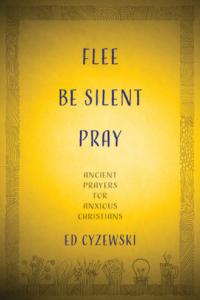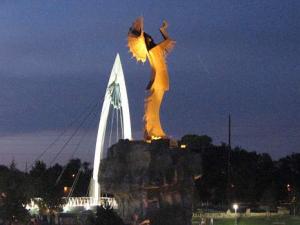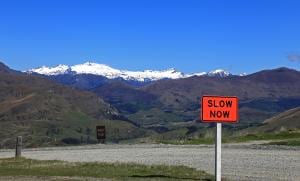The biggest obstacles to our spiritual life are often our own healthy survival mechanisms.
 I suppose that phrase needs some unpacking. I recently had the privilege of interviewing Ed Cyzewski for the otherWISE podcast, talking about his book “Flee, Be Silent, Pray: Ancient Prayers for Anxious Christians.” The thrust of the book is quite simple, namely that learning the practices of contemplation and contemplative prayer help to lift us out of our spastic, reactionary spiritual lives.
I suppose that phrase needs some unpacking. I recently had the privilege of interviewing Ed Cyzewski for the otherWISE podcast, talking about his book “Flee, Be Silent, Pray: Ancient Prayers for Anxious Christians.” The thrust of the book is quite simple, namely that learning the practices of contemplation and contemplative prayer help to lift us out of our spastic, reactionary spiritual lives.
The beauty of contemplation is that it is the soft healing for which those of us who are scattered and fearful search.
After that interview, I began to think about the various things going on in my own life: health challenges in our extended family, some new ground being covered in my own interactions with a counselor, and the ongoing journey that is writing.
I thought also of our country and the state of division that is deeply rooted in every word and phrase on social media and cable news. There is an endless, even restless search for the one flaw in the “armor” of the “other” that we can exploit. Why? So that we can be right and feel safe, protected even, in our positions.
Ed names this reality so clearly in his book:
Looking back now, I see that I made the mistake of trying to transform culture without first being transformed into someone worth imitating or able to offer something truly transformative.
The restless pursuit we all engage in is to make that which should be into that which is.
Our restlessness can be healthy. It moves us to thoughtful, graceful work to bring justice and hope to broken places in our life and in the lives of others. But often it leads us to click “Like” on a post and feel this sense that we’ve achieved change with one keystroke. We listen for the talking point that sets fire to a person’s argument or worldview, so that we can insulate ourselves in a blanket of “right” against the ongoing threat of wrong.
Please hear me: there is such thing as “good” or “right” and “evil” or “wrong.” The problem is that we often don’t pause long enough to let our reflection catch up to our action. We act and then think about what we should do.
Instead, to process and slow down is the way God transforms us. In turn, we act in transformative ways in the world.
The Lizard Brain For the Win
It isn’t an accident that we are bent toward reaction rather than reflection. The part of our brain that controls fight or flight, our survival response, isn’t a processing agent. Stimuli that represent a threat, danger, or pain immediately trigger a reaction. It also stands to notice that this reaction is often tied deeply to our memories of being hurt in the past.
The operation of life at this level means we only live in the present moment (because that’s where the threat is) and we think primarily about what keeps us alive and safe (so that we can continue).
The “lizard brain,” as it is called, doesn’t leave time for reflection because if you reflect you die.
We as human beings have survived as a species BECAUSE of this way of thinking and being. It is a necessary part of life. It can also become a huge obstacle to our spiritual journey.
The reason I say that is because we tend to do at least one of the following with our lizard brain:
- We categorize EVERYTHING as fight or flight. Politics is a great place to see this in action. In campaign season, candidates create enemies and then reveal how they (and they alone) are able to protect us from our enemies. The raw power of FUD (fear, uncertainty, and doubt) captures our lizard brain. The “threat” ushers from thinking critically (Is this a real threat? Will that plan really protect us? What am I missing?) to thinking reactively (We have to do something now! No time to think!). The objection is that there are real threats, and that is absolutely true. However, live in FUD so often that see ghouls because we’ve been taught to anticipate the presence of ghouls….and/or…
- We use our past experiences to maximize threats. We tap into our own experiences of failure and they become insecurity. The wounds we’ve received in intimate relationships build walls against further intimate relationships. We see the same markers and instead of engaging a way of wisdom (Ok, so this could be an issue) we move to immediate reaction (Shields up! This is exactly how it happened last time!)
These are not BAD reactions. Far from it. Yet even healthy things can become dangerous in excess. So what is the alternative?
Contemplation vs. The Lizard
I believe the practices of contemplation and contemplative prayer help us with our reactionary way in the world.
Contemplative practices such as silent prayer and entering into the darkness of the mystery of God help us with the lizard brain. In these practices, the Spirit invites us to step out of reaction into reflection, and out of panic into patience.
To live at the level of the lizard brain means that we refuse to understand truly who we are. Wading deeply into our own soul means engaging with realities that threaten the “safety” of our sense of self.
We read about the rich young man who approached Jesus asking “What must I do to inherit eternal life?” Jesus’ reply of “One thing you lack…” was a signal. The young man’s lizard brain kicked in, he felt a threat to his fortress of “self.”
We often read the young man’s response as greed. But I wonder if the motivation was this:
“I don’t know who I am without my wealth. I have to protect my identity.”
Ed’s book is helpful in reminding us that we don’t have to have a “hot take” on every event. Our identity is safe in Christ, so that no one can hurt us irrevocably (Hebrews 13:6). The lizard brain can then take its place with our more reflective faculties. We can then learn to process the world deeply, acting in wisdom instead of willfulness.
In the meantime, we will find the quiet presence of God we’ve been looking for.
The peace that we need to handle real life crises will be available.
Energy that we spent fighting, flighting, and fearing turns toward the journey of knowing ourselves and our world better.
We can then act with grace, grace, and more grace.
Where do you see yourself living in the “fight or flight” mentality today? What challenges are you facing today with panic instead of process?
I’d encourage you to pick up a copy of Ed Cyzewski’s book today and engage with the contemplative practices within. It is good to know that anxiety does not have the last word.











